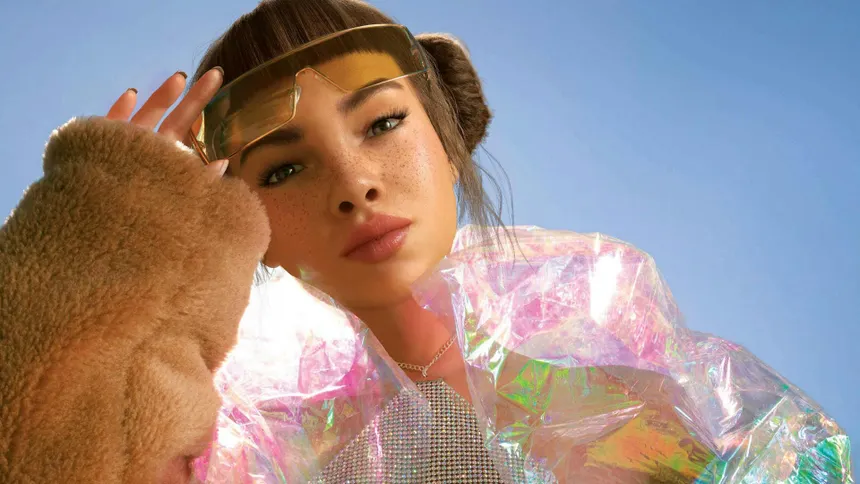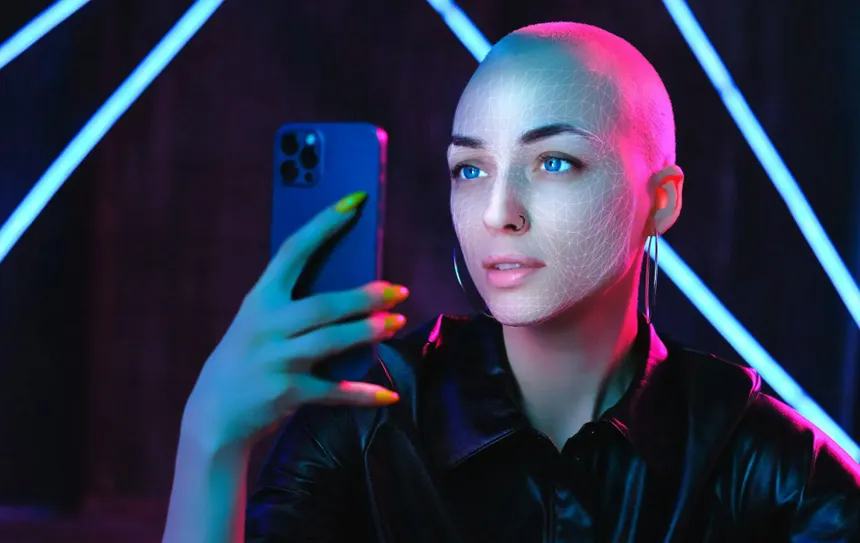AI influencers in digital marketing are transforming the way brands engage with audiences. From virtual models to AI-generated personalities, these digital influencers offer businesses cost-effective and highly customizable marketing opportunities. As technology advances, AI influencers are not just a futuristic concept but a reality shaping the present and future of brand promotions.
What Are AI Influencers?
AI-influencers are computer-generated digital personalities designed to interact with audiences on social media platforms. Unlike human influencers, AI influencers are created using artificial intelligence, machine learning, and CGI (computer-generated imagery). Some of the most well-known AI influencers include:
- Lil Miquela – A virtual Instagram model with millions of followers.
- Shudu Gram – A hyper-realistic digital supermodel.
- Noonoouri – A fashion-forward AI influencer collaborating with luxury brands.
These digital influencers engage with audiences through posts, videos, and even brand collaborations, just like their human counterparts.

Why Are Brands Investing in AI Influencers?
1. Cost-Effectiveness
Traditional influencers charge high fees for brand endorsements. AI-influencers, on the other hand, eliminate the need for salaries, travel expenses, and other logistical costs, making them a more budget-friendly option.
2. Complete Creative Control
Brands can fully customize AI-influencers to align with their identity. From appearance to personality traits, AI influencers can be tailored to fit a brand’s image and message perfectly.
3. Consistency & Reliability
Unlike human influencers who may have controversies or unpredictable behaviors, AI-influencers remain consistent. They do not age, get involved in scandals, or miss deadlines.
4. Global Reach Without Limitations
AI influencers can be programmed to speak multiple languages and connect with audiences worldwide without facing physical or cultural limitations.
5. Endless Content Creation
Since AI-influencers are digital, they can generate content 24/7. Brands can release promotional campaigns at any time without delays.

The Impact of AI Influencers on Digital Marketing
1. Higher Engagement Rates
AI-influencers often achieve impressive engagement rates due to their unique and futuristic appeal. They create curiosity among audiences, leading to higher interaction levels compared to traditional influencers.
2. Personalization & AI-Driven Insights
With AI technology, these digital personalities can analyze user data and provide brands with valuable insights into consumer behavior. This helps businesses refine their marketing strategies for better results.
3. Shifting Consumer Perceptions
While some consumers are excited about AI-influencers, others remain skeptical. Brands must balance the use of AI influencers with authenticity to maintain trust and credibility among their audience.
4. AI-Generated Virtual Experiences
Brands are now exploring AI-powered virtual influencers in the metaverse. AI influencers are being used to host virtual fashion shows, live Q&A sessions, and even interactive storytelling experiences, revolutionizing how brands connect with consumers.
5. Redefining Influencer Marketing Ethics
AI influencers bring new ethical challenges. Issues such as transparency, authenticity, and AI regulations are becoming critical topics in digital marketing discussions.

Challenges & Limitations of AI Influencers
1. Lack of Authentic Human Connection
Despite their high engagement rates, AI-influencers lack genuine human emotions. Some audiences may prefer real influencers who can share authentic experiences and emotions.
2. Ethical Concerns & Trust Issues
Some consumers may feel deceived if they are unaware they are interacting with an AI-influencer. Brands must ensure transparency to maintain trust.
3. High Initial Investment
Creating an AI-influencer requires expertise in AI development, CGI, and digital marketing, which can be costly for brands initially.
4. Legal & Copyright Issues
Since AI-influencers are relatively new, legal regulations surrounding their usage are still evolving. Issues regarding intellectual property rights, AI-generated content ownership, and transparency policies are potential challenges brands must navigate.

The Future of AI Influencers in Digital Marketing
With the rapid advancement of AI technology, the future of AI-influencers looks promising. Here are some potential developments:
- Hyper-Personalized AI Influencers – Future AI influencers may be able to adapt their personalities and interactions based on individual user preferences.
- Integration with Virtual & Augmented Reality (VR/AR) – AI influencers will become more interactive through AR and VR, allowing users to engage with them in immersive experiences.
- Increased Brand Adoption – As technology becomes more accessible, more brands will experiment with AI influencers for marketing campaigns.
- AI-Generated E-Commerce Assistants – AI-influencers could be used as virtual shopping assistants, providing customers with personalized recommendations.
Conclusion
AI influencers in digital marketing are revolutionizing the industry by offering brands new ways to engage with audiences. While they provide cost-effective, customizable, and innovative marketing solutions, they also come with challenges such as ethical concerns and authenticity issues. As AI technology continues to advance, businesses must strike a balance between human touch and digital innovation to maximize the benefits of AI-influencers while maintaining consumer trust.
The future of digital marketing is evolving, and AI-influencers are undoubtedly a key part of this transformation. Brands that embrace this trend early can gain a competitive edge and stay ahead in the ever-changing world of social media marketing.
Public Insurance Showdown: Experts Clash Over Healthcare Costs & Access!






